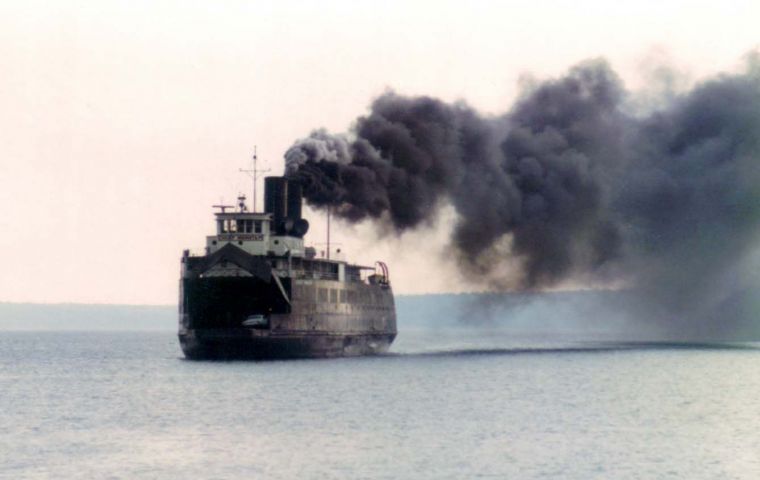MercoPress. South Atlantic News Agency
Shipping emissions the greatest challenge to oil price hikes
 On January 1, 2020, the IMO will enforce new emissions standards designed to significantly curb pollution produced by the world's ships.
On January 1, 2020, the IMO will enforce new emissions standards designed to significantly curb pollution produced by the world's ships. The most prominent driver of oil prices over the next two years is not likely to come from OPEC, Iran or Venezuela, but rather in the shape of a shipping revolution, analysts have warned. New rules coming into force in approximately 18 months' time are seen as a source of great concern for some of the world's biggest oil producers.
That's because global energy and shipping industries are thought to be ill-prepared for the looming sea change.
On January 1, 2020, the International Maritime Organization (IMO) will enforce new emissions standards designed to significantly curb pollution produced by the world's ships.
”It's the biggest (change) in the history of the market,“ Amrita Sen, chief oil analyst at Energy Aspects, told CNBC's ”Squawk Box Europe“ this week.
Amid a broader push towards cleaner energy markets, the IMO's changes will specifically look to cut back sulfur emissions. The pollutant is a component of acid rain, which harms vegetation and wildlife, and is blamed for some respiratory illnesses.
The forthcoming measures are widely expected to create an oversupply of high-sulfur fuel oil while sparking demand for IMO-compliant products — thus ratcheting up the pressure on the refining industry to produce substantially more of the latter fuels.
”That is very important because Middle Eastern producers lose out heavily from that because their crude tends to be very high sulfur,“ Sen said.
In contrast to some of the world's leading oil producers in the Middle East, including OPEC kingpin Saudi Arabia, the U.S. is expected to be better-placed to cope with the IMO's measures due to their reputation for producing lighter crude.
Global benchmark Brent crude will climb to US$ 90 a barrel by 2020 as new international shipping laws overhaul the types of fuels produced by refiners, Morgan Stanley analysts predicted in a research note.
”We expect the crude oil market to remain under-supplied and inventories to continue to draw,“ the bank said, before adding: ”This will likely underpin prices.”
To be sure, the IMO's rules will ban ships using fuel with a sulfur content higher than 0.5%, compared to 3.5% at present, unless ships are fitted with equipment to clean up its sulfur emissions.




Top Comments
Disclaimer & comment rulesCommenting for this story is now closed.
If you have a Facebook account, become a fan and comment on our Facebook Page!